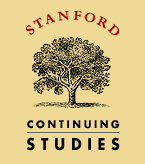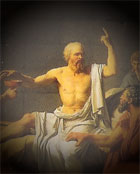Empedocles
1.
According to Satyrus, Gorgias says that he himself was present when Empedocles performed magical deeds, and Empedocles himself professes as much - and much else beside - in his poems where he says:
What drugs there are for ills and what help against old age
you will learn, since for you alone shall I accomplish all this.
And you will stop the power of the tireless winds which sweep over the earth
and destroy the crops with their breath,
and again, if you wish, you will bring on compensating breezes.
And after black rain you will produce a seasonable drought
for men, and after the summer drought you will produce
tree-nurturing streams which live in the ether.
And you lead from Hades the power of dead men. [B 111]
(Diogenes Laertius, Lives of the Philosophers VIII 60)
2.
Such according to Empedocles is the generation and destruction of our world and its composition from good and evil. He says that there is also a third intelligible power which again can be made from these. He writes:
For if you press them into your throbbing mind
and watch over them in kindly fashion with pure attentions,
these will indeed all remain with you throughout your life,
and you will gain many others from them; for they themselves will increase
each into its character as is the nature of each.
But should you reach out for things of a different kind which among men
are numberless and trifling and blunt their thoughts,
they will leave you at once as time revolves,
desiring to come to their own dear kind;
for know that they all have thought and a share of mind. [B 110]
(Hippolytus, Refutation of All Heresies VII xxix 25-26)
3.
In the first book of his Physics Empedocles talks about the one and the finitely many and the periodic creation and generation and destruction by association and dissociation in the following way:
I will tell a two-fold story. At one time they grew to be one alone
from being many, and at another they grew apart again to be many from being one.
Double is the generation of mortal things, double their passing away:
one is born and destroyed by the congregation of everything,
the other is nurtured and flies apart as they grow apart again.
And these never cease their continual change,
now coming together by Love all into one,
now again all being carried apart by the hatred of Strife.
<Thus insofar as they have learned to become one from many>
and again become many as the one grows apart,
to that extent they come into being and have no lasting life;
but insofar as they never cease their continual change,
to that extent they exist forever, unmoving in a circle.
But come, hear my words; for learning enlarges the mind.
As I said before when I revealed the limits of my words,
I will tell a two-fold story. At one time they grew to be one alone
from being many, and at another they grew apart again to be many from being one -
fire and water and earth and the endless height of air,
and cursed Strife apart from them, balanced in every way,
and Love among them, equal in length and breadth.
Her you must regard with your mind: do not sit staring with your eyes.
She is thought to be innate also in the limbs of mortals,
by whom they think thoughts of love and perform deeds of union,
calling her Joy by name and Aphrodite,
whom no-one has seen whirling among them -
no mortal man. Listen to the course of my argument, which does not deceive:
these are all equal and of the same age,
but they hold different offices and each has its own character;
and in turn they come to power as time revolves.
And in addition to them nothing comes into being or ceases.
For if they were continually being destroyed they would no longer exist.
And what could increase this universe? and whence might it come?
And where indeed might it perish, since nothing is empty of them?
But these themselves exist, and passing through one another
they become different at different times - and are ever and always the same. [B 17]
Here he says that that which comes from many - from the four elements - is one, and he shows that it exists sometimes when Love is dominant and sometimes when Strife is. For that neither of these completely passes away, is shown by the fact that they are all equal and of the same age and that nothing comes into being in addition to them or ceases. The many from which the one derives are plural - for Love is not the one, since Strife too brings them into unity.
(Simplicius, Commentary on the Physics 31-32)

